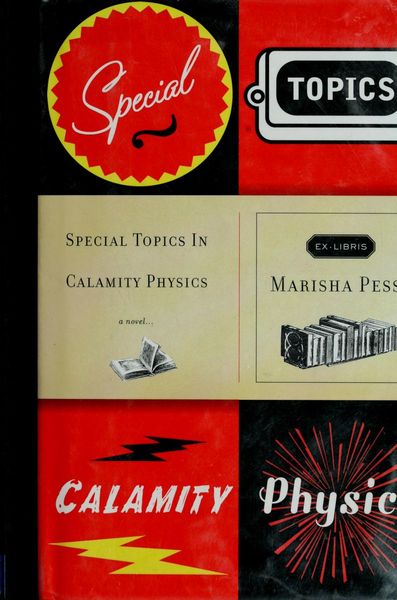
Special Topics in Calamity Physics
Having moved from one academic outpost to another throughout her childhood at the side of her aphorism-prone father, Blue van Meer attends the elite St. Gallway School in her senior year, where she falls in with a charismatic group of friends before the deaths of a teacher and student awaken her analytical instincts. A first novel. 50,000 first printing.
Reviews
Martha F.@marthaq
Colleen@mirificmoxie
Lauren Tabor@readingthroughwonderland10
Emma Friedheim@emrosemary
aem@anaees
Sarah Escorsa@shrimpy
Kwan Ann Tan@kwananntan
Jade Flynn@jadeflynn
Ruby Huber@rubyread
Anastaciya@anastaciya
Joshua Line@fictionjunky
Angi Cox@blueberry
serena maeve.@ayato
francine@francine_hl2
Hazel@exlibrisrylie
Olivia@olivia11235813
Mitz@mitz
savannah eden@savbrads
Kyle Curry@kcurry24
ann@nemereno
Dennis Jacob Rosenfeld@rosenfeld
Aubrey Hicks@aubreyhi
Crystal L@umcrystal
Jane Mount@janemount